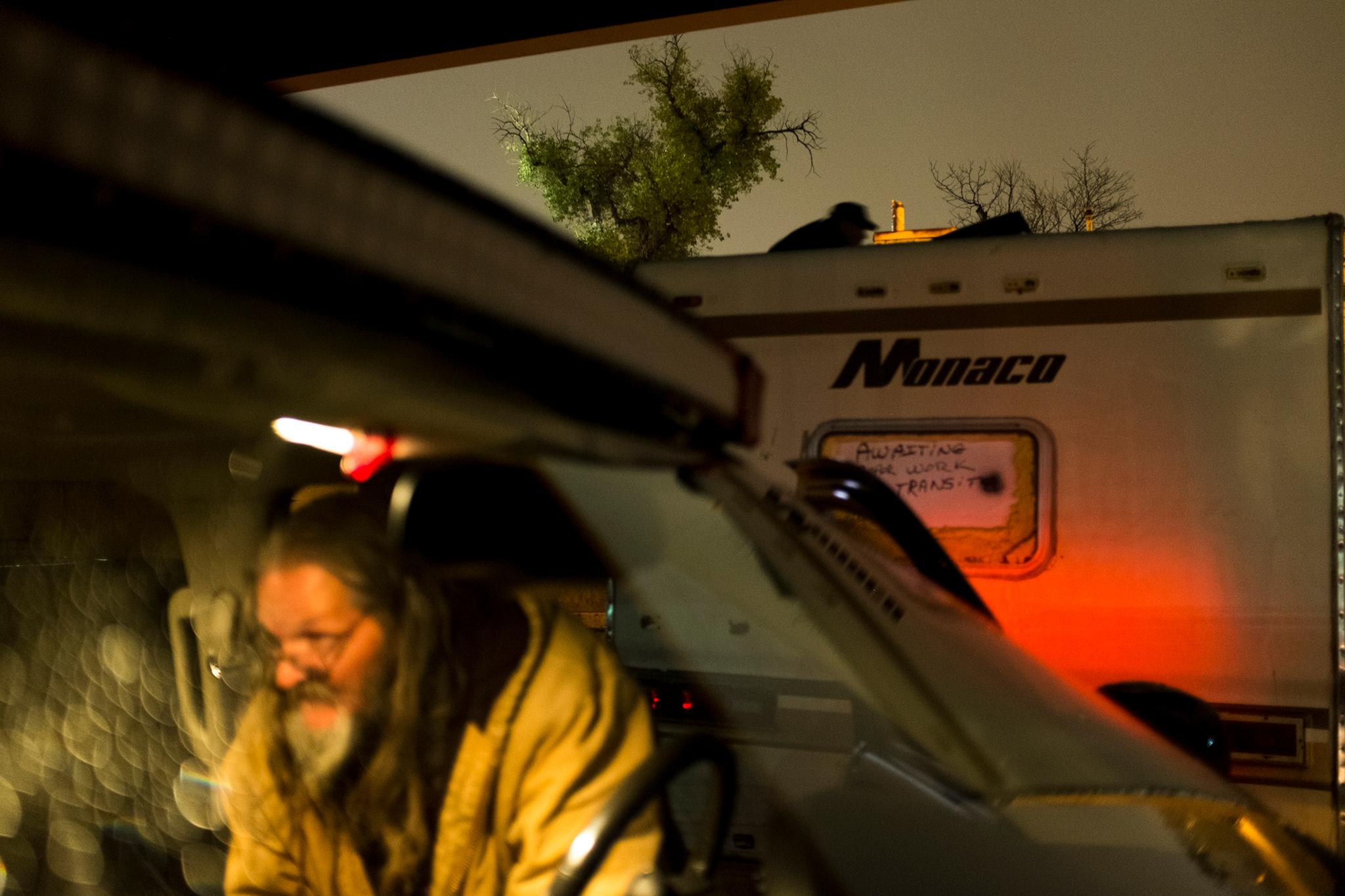It was just after 10 p.m. and just above freezing. Snow and rain hit the Sixth Avenue bridge near Santa Fe Drive, melting and mixing to send a stream of bone-chilling water down on anyone below standing -- or trying to sleep -- in the wrong place.
A man driving a dark Suburban with the red-and-white Salvation Army shield on the door parked in the gloom beneath the bridge. After a brief, murmured conversation, the driver tossed bottles of water and snacks to a man he found with a battered RV.
The man perched on the RV's roof tried to strike a light-hearted note.
"I get all the crispy treats!" he sang out. The street lamps had provided just enough light for him to see he'd caught a cereal bar from the businesslike John Jenkins, who a few minutes later handed over two blankets.
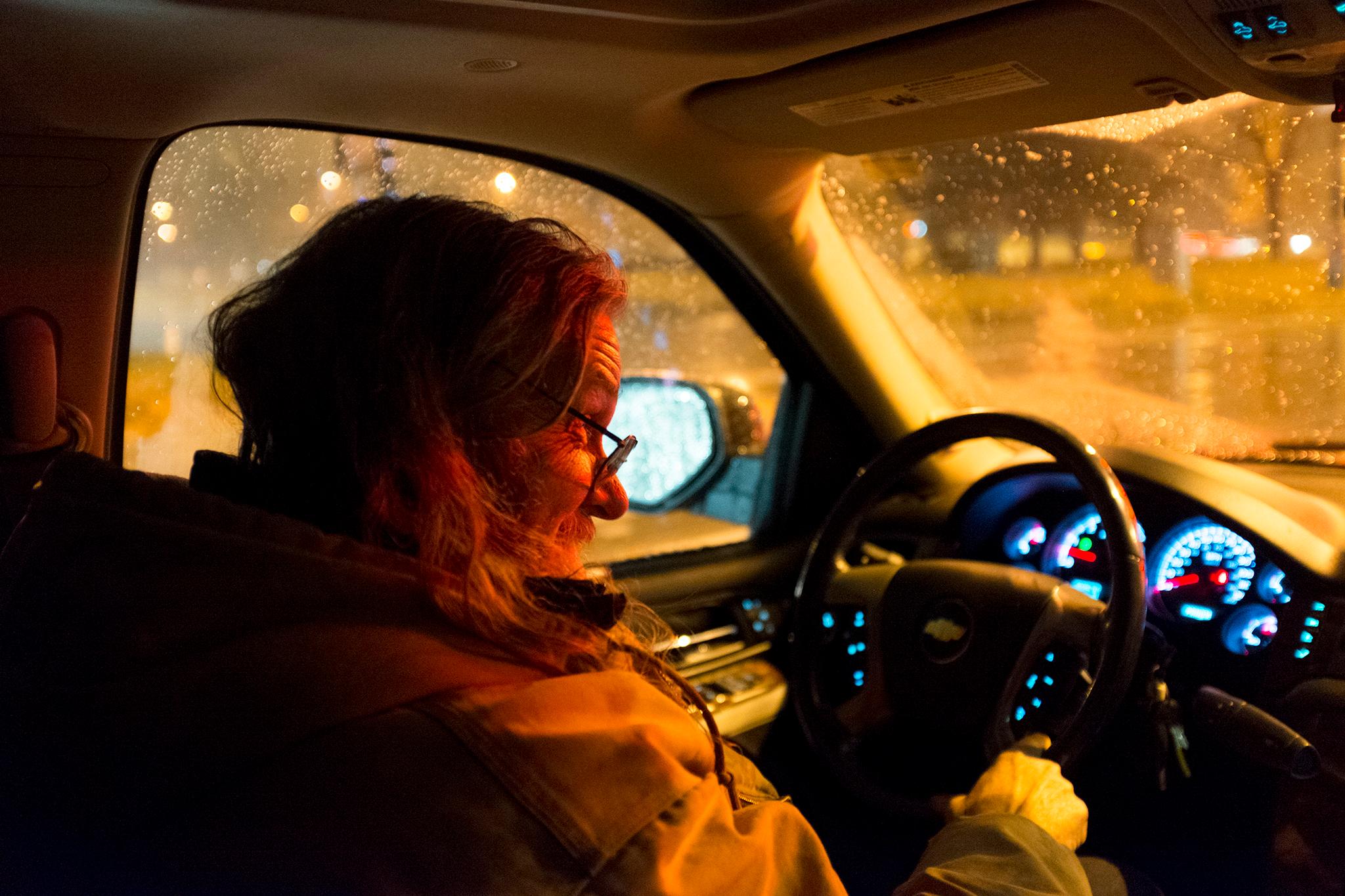
The giver and receiver have much in common.
Both were trying to keep people warm on a bitter night. The man on the RV, who described himself as a jack-of-all-trades day laborer, had invited two friends and a stranger into his vehicle.
And both are shelter-shy and among the working poor who cannot afford permanent housing in Denver's fierce market.
Jenkins has a job with the Salvation Army, working from 9 p.m. to 1 a.m. four nights a week looking for people in need of help. His job includes a few more hours a week driving women to churches that offer overnight shelter.
Jenkins's shift Tuesday night as a member of what the Salvation Army calls its Search & Rescue team came a day after the city's coordinator of homelessness services urged people to seek shelter because a cold snap was imminent. City officials also cleared an encampment along Arapahoe and Larimer on Monday, saying they were acting both because business owners had complained about litter and waste and because they hoped some of the campers would be persuaded to go to a shelter because of the impending bad weather.
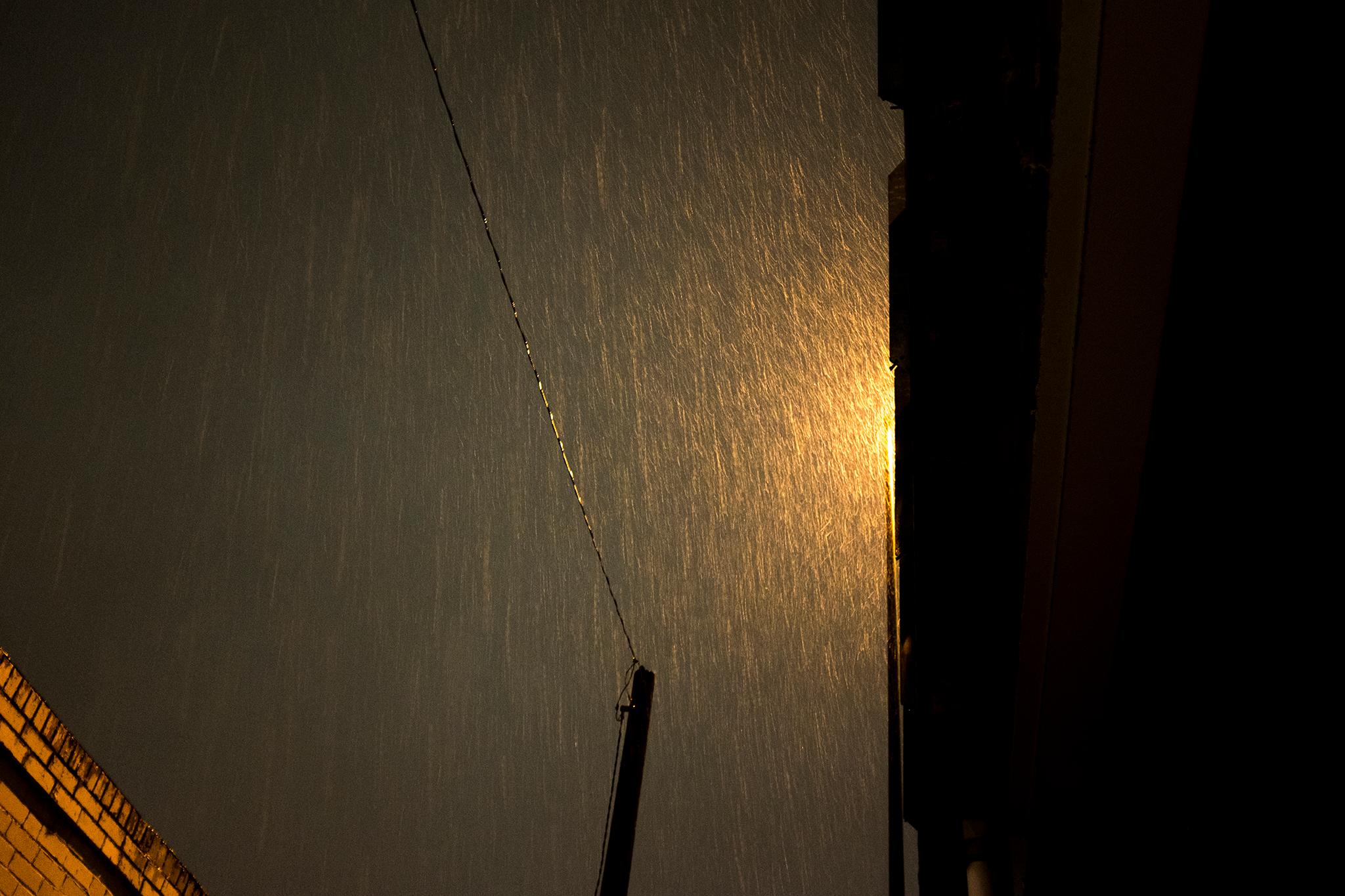
The night is cold and quiet following city intervention.
Jenkins found scores of people on the streets Tuesday, but said it was fewer than the usual number. He said he believed that instead of going to shelters, many had retreated to corners of the city where they hoped authorities would not find them.
Chris Connor, who directs the city agency Denver's Road Home that coordinates homelessness services, said the Denver Rescue Mission reported just 39 total empty beds Tuesday at the three shelters it runs, compared to 155 the night before. Salvation Army spokeswoman Rachael Fowler said her group's Crossroads facility was full and it worked with other shelters "to make sure everyone who wanted a place to sleep had a place to sleep." The Salvation Army shelter was also full Monday night, when the weather was better, she said.
The Salvation Army has had some form of Search & Rescue for a decade. More recently the Salvation Army got a city contract to provide the service in Denver.
"We stepped in to ... grow the program," Connor said, saying that among other things it has created a connection on which Denver Health emergency rooms can count. The Salvation Army team regularly stops by Denver Health to see whether anyone being discharged from the ER wants to be taken to a shelter.
Jenkins said that when he first began driving for Search & Rescue about a year and a half ago, everyone he encountered was offered a ride to a shelter. The offer was usually refused, he said. He has learned that when people are ready, they will ask, he said.
Jenkins, 57, grew up in Florida and Georgia, where he also experienced homelessness. After a previous visit he moved to Denver four years ago, believing he would find opportunity.
"I came here knowing that if I worked hard enough I'd be off the streets in three and a half to five years," he said. "I might hit that five-year mark. It's hard."
When he arrived he chose to sleep in a Salvation Army shelter because he did not believe he had the proper cold weather gear.
"You get wet, you're going to get sick," he said. "You don't have the means to stay warm, to stay dry, it's going to kill you."
Department of Public Health & Environment spokesman Jeremy Garland said four people died outside during a snowstorm in Denver almost two weeks ago. He said the causes of the deaths had not yet been determined.
An old car can be a new home.
Last February, Jenkins bought a 1987 Oldsmobile for $500. It is both his means of transportation to work and his home. While the car is in rough shape, it gives him the freedom he missed in the shelter.
"If I want to get up in the middle of the night and holler at the sky, I can," he said.
While he doesn't like shelters, staying at a Salvation Army facility led to his Search & Rescue position.
"I like doing this job," he said. "A lot of people helped me when I was homeless. Now I can help a lot of people."
His shifts start at the Salvation Army supply warehouse in Aurora where he parks his Oldsmobile and picks up the branded Suburban for the 30-minute drive west to Denver. He knows how people experiencing homelessness see him behind the wheel of the Suburban.
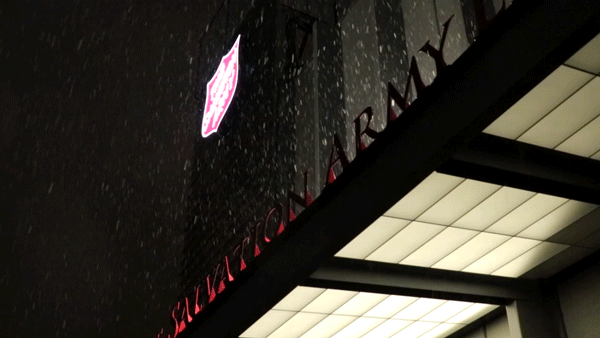
"If they know the vehicle and the vehicle shows up, their eyes brighten," he said. "They smile."
At 6-foot-3 and bulky in a puffy jacket, Jenkins is an imposing figure. His Gandalf beard and long gray hair give him even more authority. He undercuts all that with a soft voice as he approaches men and women he called clients sleeping in tents, cardboard shacks or just wrapped in blankets that he had handed out on previous rounds.
"Do you need a blanket? Do you need a snack? Do you need personal hygiene?" he said again and again Tuesday night. At a church near the Blair-Caldwell African American Research Library in Five Points. At a pay parking lot near Mile High United Way's Curtis Park headquarters. At a neat row of nylon tents at 24th and Lawrence with a view of yellow tape and four police cars, lights blinking, at the spot where people experiencing homelessness had been moved on Monday. A man in one of the tents asked for a sleeping bag.
"I don't have sleeping bags. I have blankets,'' Jenkins said.
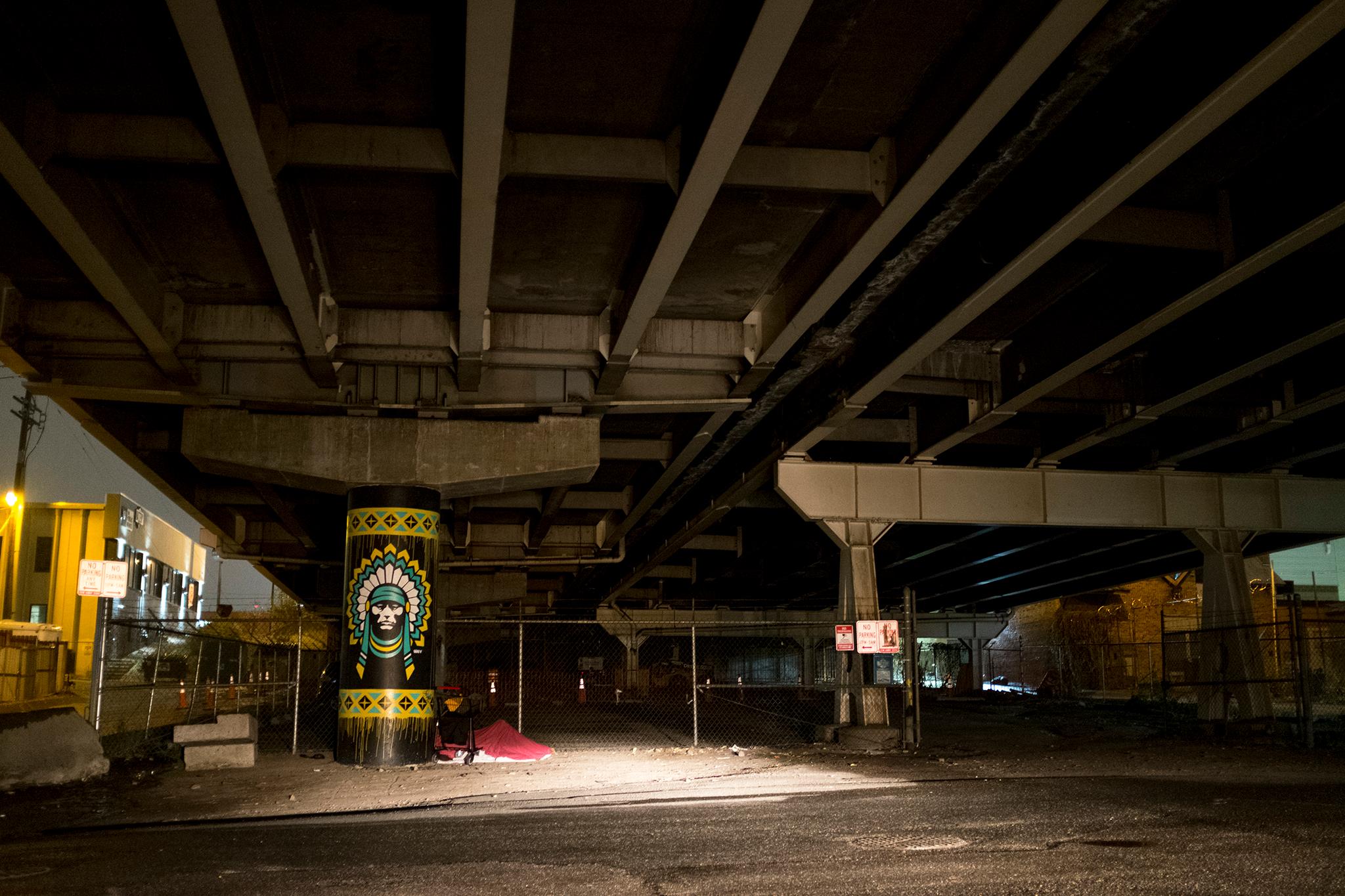
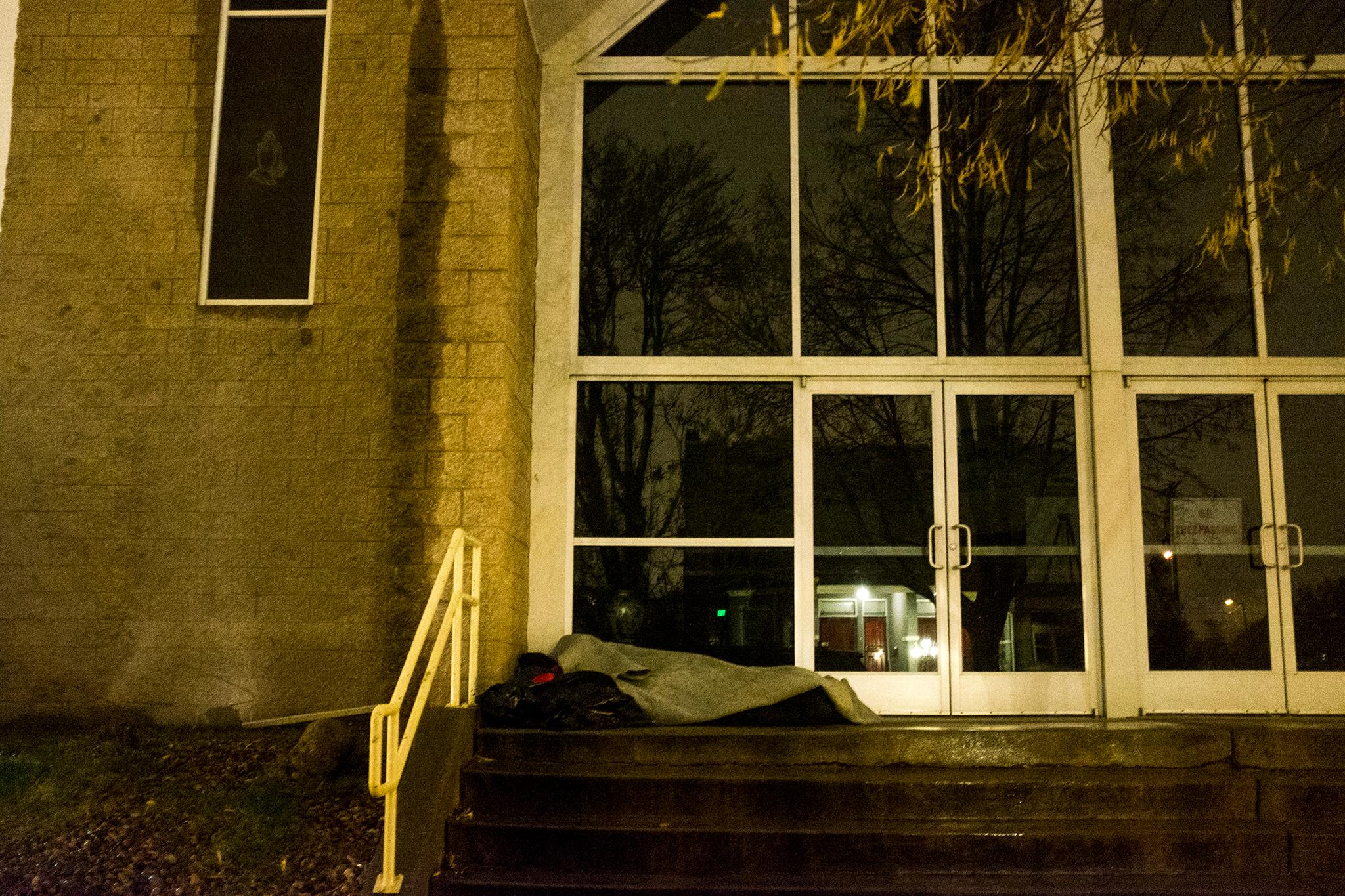
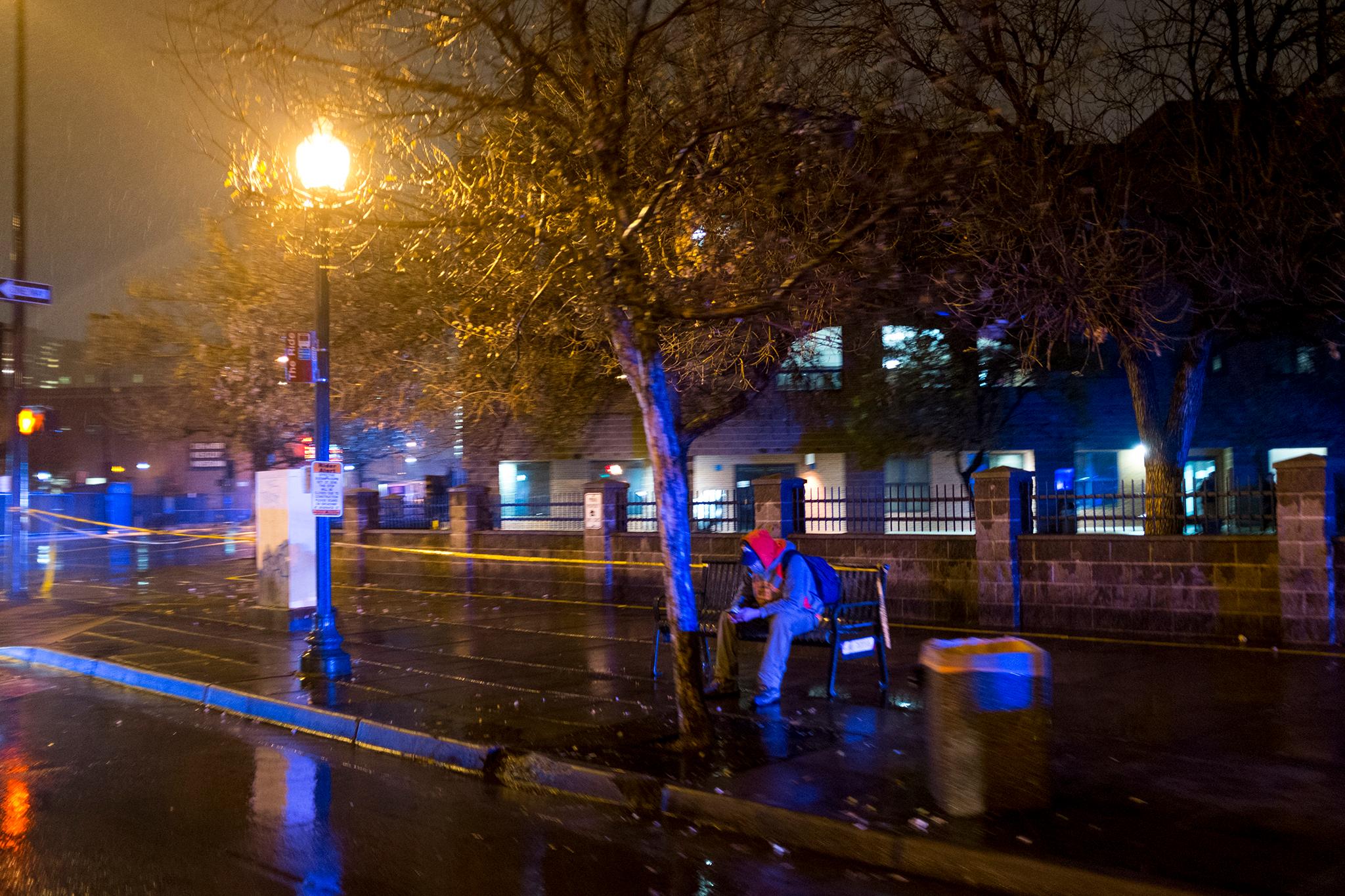
Under the Sixth Avenue bridge, he also found a woman who uses a wheelchair who he'd seen before. She was on the ground in a sleeping bag. Just across the pavement, the man with the RV declared "shelter" to be a "naughty word," saying he had been turned away for not having identification or proof he was tuberculosis free. Fowler of the Salvation Army said shelters work to be welcoming.
If Jenkins can't rouse a sleeping client, he places a water bottle nearby.
"If another homeless person doesn't take it from them, they know when they find it in the morning that Search & Rescue has been to check on them," he said.
Frustration is born of experience.
Jenkins expressed frustration with people experiencing homelessness, who he said would draw less problematic attention if they kept their camps free of litter. He was also critical of city officials he called on to do more to provide permanent housing.
His own experience of homelessness gives him a window on the experience of others.
"They feel defeated, let down, by the country, the government, whoever is in charge. They themselves feel defeated and their self-confidence goes right down the drain."
But he said, "I don't feel defeated. I feel disgusted with certain outcomes.
"If I felt defeated ... I wouldn't be doing this job.
"I'll keep fighting."

